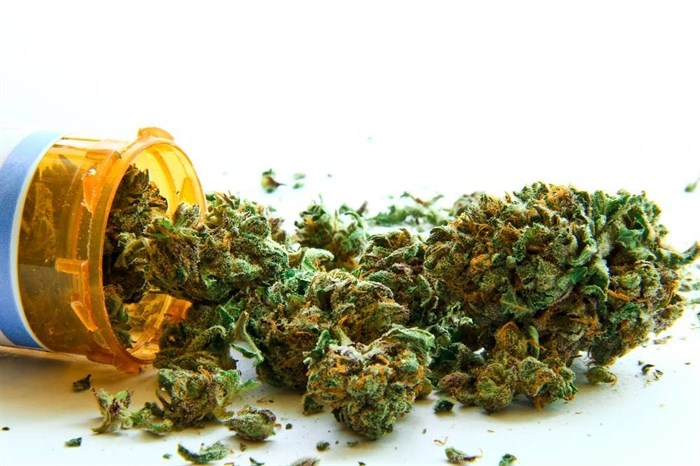
Image Credit: shutterstock.com
March 20, 2015 - 7:30 PM
KAMLOOPS – There are few studies in the world that have examined the medical capabilities of cannabis, but one Kamloops doctor is hoping to change the trend by studying the drug’s effect on patients suffering from post traumatic stress disorder.
Dr. Ian Mitchell, an emergency room doctor and physician-on-site for the local ReaLeaf Wellness Centre regularly prescribes medical marijuana to chronic pain sufferers. After meeting University of B.C. professor and psychologist Zach Walsh at a medical conference, the duo discussed the potential for a Canadian study on the medicinal properties of marijuana on post traumatic stress and decided to work together on a project.
The study, if approved by Health Canada and the university, would be the first of its kind to test strains of cannabis on approximately 40 patients — some veterans, others victims of sexual assault — suffering from symptoms caused by the disorder. If effective, Mitchell hopes the drug will essentially replace the need for stronger prescription drugs, like Paxil, typically used to treat the condition.
“You read the stories about people with PTSD and all the different medications they get tried on. It’s quite disturbing after a while — the side effects they go through, and the difficulty they have with medications,” he says.
Mitchell notes there has been a large historical trend of veterans using cannabis to curb symptoms of the disorder, such as poor sleep, nightmares and flashbacks, but says the effects have never been formally studied.
The doctor says he and Walsh, partnered with government licensed producer Tilfor which is funding the project, would track the drugs effect on patients for the better part of a year if the study is approved.
If the project is successful, Mitchell believes it could help push government to consider covering it as a medical expense for the disorder, which he says representatives at Veterans Affairs Canada have started to do.
“The issue comes up that if you have something that is effectively a drug and treats your condition, are we going to pay for that in Canada? It becomes an interesting financial question of how to best deliver this medication and whether or not we should fund it publicly,” he says. “If we’re going to cover it then the studies have to be done that show it’s effective. We should be measuring whether it’s better for people to be on oxycodone long-term versus being on cannabis.”
Yesterday, March 19, an insurance firm approved covering medical marijuana expenses for a University of Waterloo student, which is the first approval of its kind in Canada, Mitchell says.
When asked why it’s taken until 2015 to test the medical properties of cannabis, he attributes the lack of scientific studies to a lengthy history of strict regulations in the United States.
“Essentially it’s difficult, if not impossible, to do this study in America,” Mitchell says.
He says the difficulty comes from there being only one legal farm in the country and the Mississippi-based location grows marijuana for specific research purposes that a study such as his wouldn't qualify for.
“Access to that cannabis is controlled by the National Institute on Drug Abuse and they only supply for studies that look at harm. So it’s not really possible to do a study looking at the benefit of cannabis in America. It’s not legal to do that,” Mitchell says.
Mitchell adds American doctors developed similar studies to his but were never given the green light by the U.S. government.
“I think there’s just a wealth of studies that need to be done and they’re going to be done in Canada and Israel. Hopefully the climate will change in America soon and more research can be done there,” he says.
If and when he gains approval for the study, it would be a number of years before results would be available because of the high level of analysis required. Should the study successfully match his hypothesis, Mitchell says he would continue studying the properties of cannabis on other medical conditions as well.
To read other stories on medical marijuana, click here.

Dr. Ian Mitchell
Image Credit: linkedin.com
To contact a reporter for this story, email Glynn Brothen at gbrothen@infonews.ca, or call 250-319-7494. To contact the editor, email mjones@infonews.ca or call 250-718-2724.
News from © iNFOnews, 2015